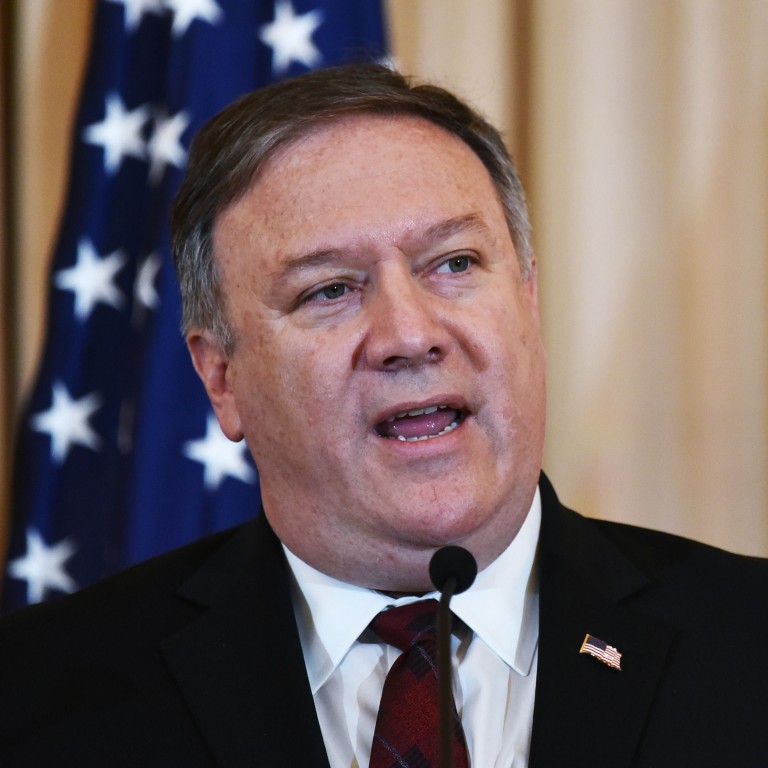
US warns companies with supply chain links to Xinjiang of economic, legal risks
- The vaguely worded advisory comes amid US and global discontent over the Hong Kong national security law and reports of human rights violations in Xinjiang
- It also aims to hasten the decoupling of the two largest economies, forcing companies, countries and chief executive officers to choose a side
The announced “Xinjiang Supply Chain Business Advisory” comes amid mounting bipartisan US and global discontent over the new Hong Kong national security law and growing reports of human rights violations in China’s far western area.
Wednesday’s Xinjiang initiative, jointly announced by the State, Treasury, Commerce and Homeland Security departments, lacks specifics but is an apparent attempt to fuel two Trump administration objectives, analysts said.
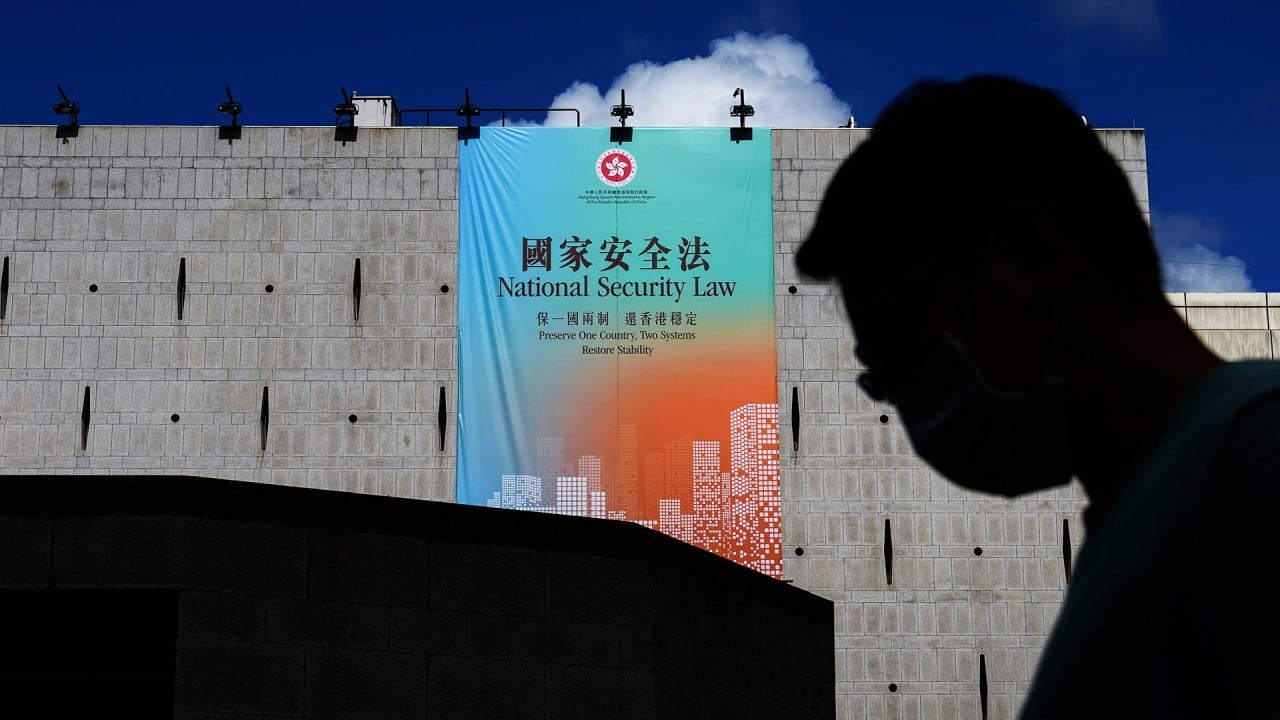
02:13
Beijing’s passage of national security law for Hong Kong draws international criticism
It aims in part to punish Beijing for imposing the Hong Kong security law, they said, and to hasten the decoupling of the two largest economies, forcing companies, countries and chief executive officers to choose a side.
“CEOs should read this notice carefully,” said Secretary of State Mike Pompeo in a press briefing. “Be aware of the reputational, economic and legal risks of supporting such assaults on human dignity.”
The initiative warns companies to inoculate their supply chains against working with suppliers complicit in the use of forced labour or other human rights abuses in Xinjiang and throughout China.
Security law adds uncertainty to election season for Hong Kong’s opposition
Corporate activities highlighted by Washington include: helping China develop surveillance tools used by the Xinjiang government; relying on forced labour or products that use forced labour whether in Xinjiang or factories elsewhere in China; and helping Beijing build internment camps in Xinjiang or locating factories near those camps.
“It’s curious that the advisory didn’t open by reminding US businesses of the sanctions and associated penalties in place related to Xinjiang workers,” said Wendy Cutler, managing director of the Asia Society Policy Institute and a former top US trade negotiator. “Instead, it appears like an advisory with guidance but no teeth.”
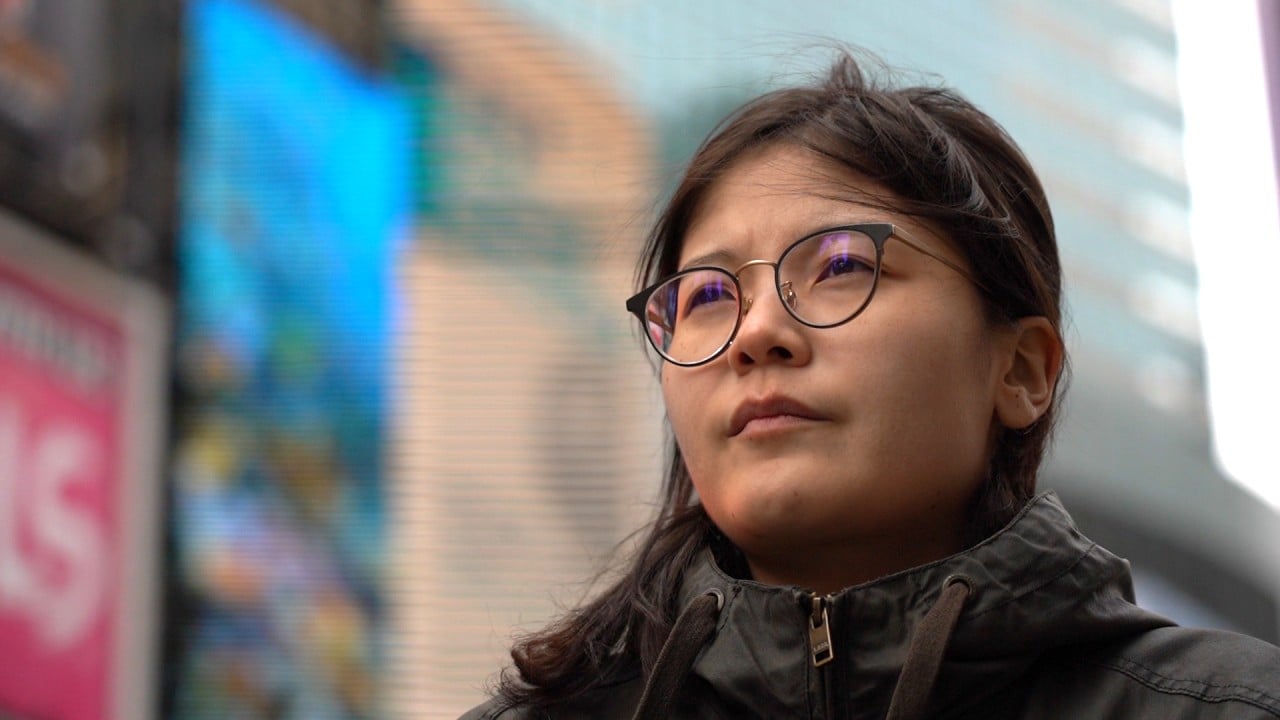
12:39
What happened to our parents? Uygur sisters seek answers
Peter Irwin, a senior programme officer with civic group Uygur Human Rights Project said the advisory goes beyond symbolism by highlighting Western companies’ complicity in the inhumane treatment of Uygurs.
Bloomberg news reported on Wednesday, citing sources, that the US was preparing to sanction senior Chinese Communist Party officials over human rights abuses in Xinjiang. But the sources reportedly cautioned that President Donald Trump – who has delayed punitive moves in the past fearing it would jeopardise trade talks or his relationship with President Xi Jinping – still needs to sign off on the decision.
China’s embassy in Washington accused the US on Wednesday of meddling in the country's internal affairs.
“The accusation of "forced labor" in Xinjiang is both false and malicious,” said an embassy spokeswoman. “By attacking China with made-up stories… the US side is trying to bring down Chinese businesses, dampen foreign investors' confidence in China and smear this country.”
Pompeo demands China end ‘Uygur sterilisations in Xinjiang’
When asked earlier this week about reports of coercive family planning among Uygurs, Chinese foreign ministry spokesman Zhao Lijian accused media organisations of “cooking up false information on Xinjiang-related issues”.
An executive in Washington who asked not to be identified citing industry sensitivities said Xinjiang has become a hugely fraught political issue for companies sourcing from China.
“It’s impossible for American companies to have a full 100 per cent visibility into their supply chains in Xinjiang,” he said. “They’re not allowed to go into and audit some factories producing goods. This has been a particular problem for the cotton industry.”
In March, a study released by the Australian Strategic Policy Institute estimated that more than 80,000 Uygurs were forced to work in Chinese factories well beyond Xinjiang. The report named dozens of foreign companies, including Nike, Adidas and Apple, that sold products made by suppliers using Uygur forced labour.
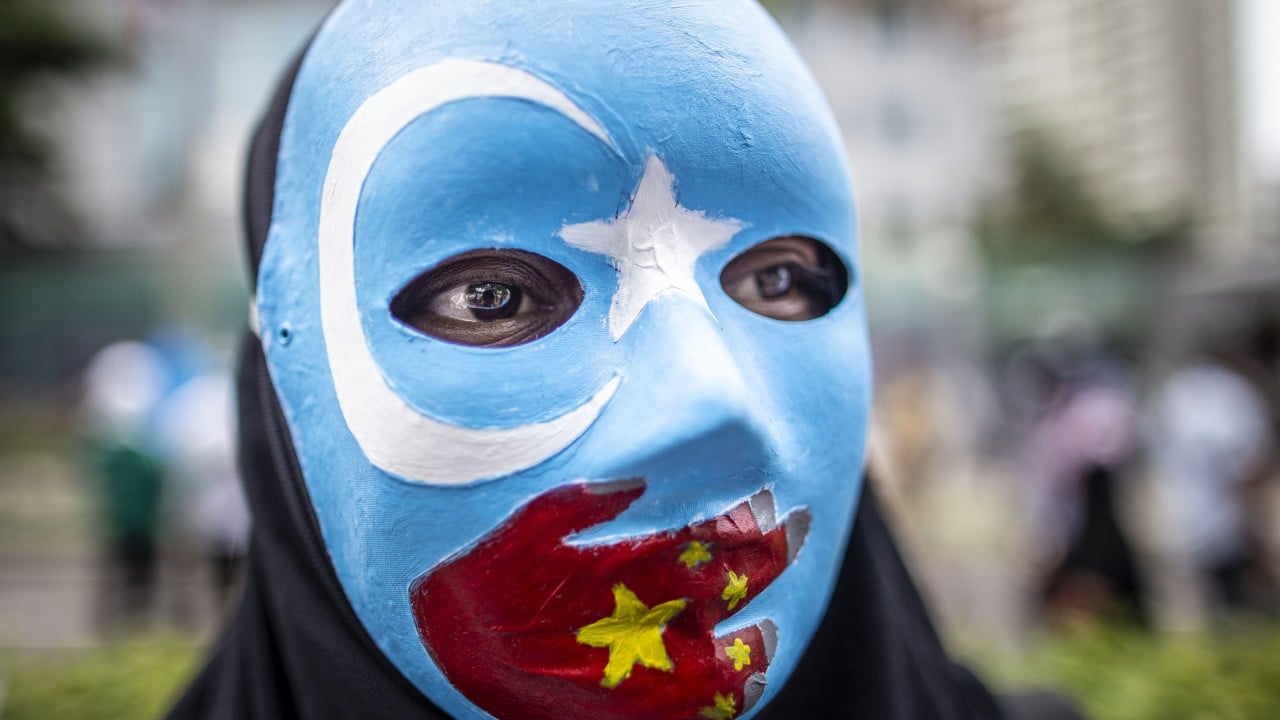
01:45
Indonesian and Malaysian Muslims protest in support of Uygurs in China
On Wednesday, the Associated Press reported that federal authorities in New York seized a shipment of weaves and other beauty accessories valued at US$800,000. The goods made of human hair are believed to be taken from people detained in a Chinese internment camp in Xinjiang.
The executive said Wednesday’s initiative carries few added legal and economic risks, but the reputational risk is a major concern for most companies.
This week, citing research by labour rights group Worker Rights Consortium, Axios reported that a China-based clothing supplier to US construction equipment company Caterpillar participates in a Xinjiang coercive labour programme.
China’s ‘repression against all religions continues to intensify’, US says
Chinese authorities have characterised internment camps that reportedly hold up to 1 million Uygurs as employment retraining facilities.
The US-China Business Council said Wednesday’s advisory is a useful reminder on safeguarding supply chains.
“Most of our member companies have maintained a clear and consistent policy forbidding all of their suppliers from engaging in forced labour activities,” said Jacob Parker, the group’s senior vice-president.
Parker added that forced labour is a global problem that governments, labour groups, companies and civic society need to tackle cooperatively. “Only through a collaboration of that magnitude, can we address some of the challenges that have been highlighted publicly,” he added.
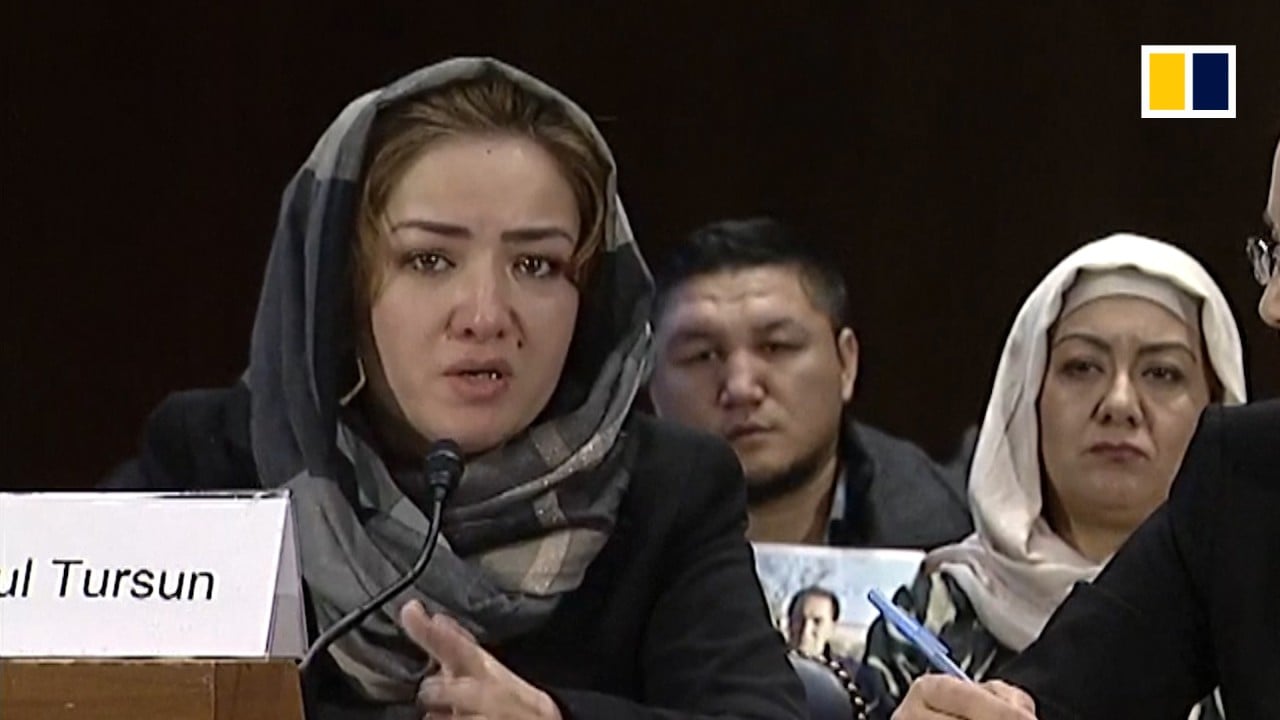
02:08
Uygur woman describes torture in China’s Xinjiang ‘vocational training’ camps
That seems unlikely any time soon given the pandemic, global economic downturn and mounting US-China tension over trade, health and human rights, among other issues.
In comments Wednesday, Pompeo highlighted steps the Trump administration has taken related to Beijing’s heavy handed enactment of the Hong Kong security law.
“Now it will be just another Communist-run city where its people will be subject to the party elite’s whims. It’s sad,” he said. “The rule of law has been eviscerated. And, as always, the Chinese Communist Party fears its own people more than anything else.”
Pompeo singled out in particular Article 38 of the new security law, which claims jurisdiction over non-residents outside Hong Kong, potentially including Americans. “This is outrageous and an affront to all nations,” he said.

